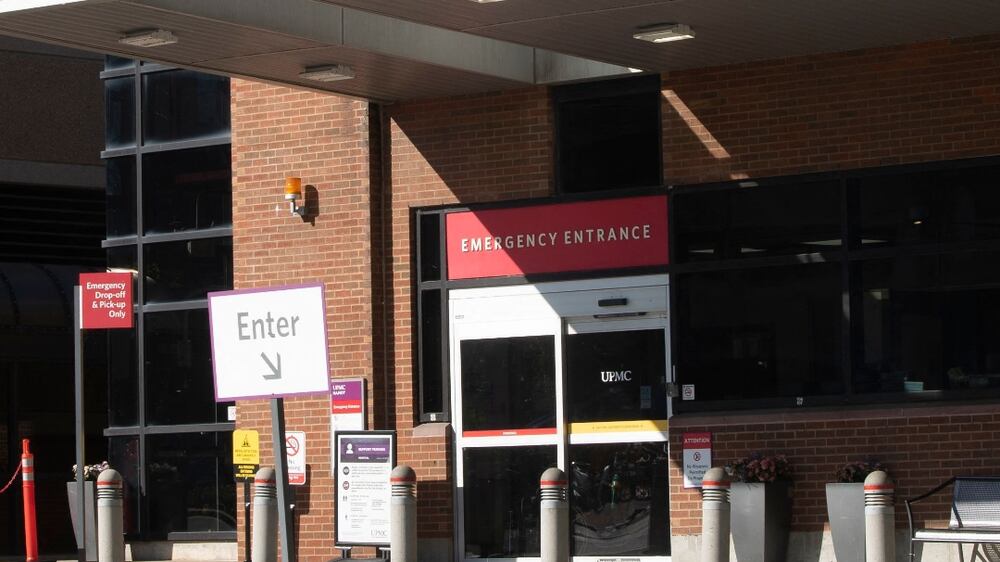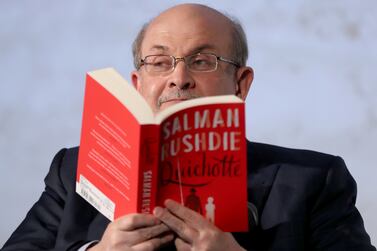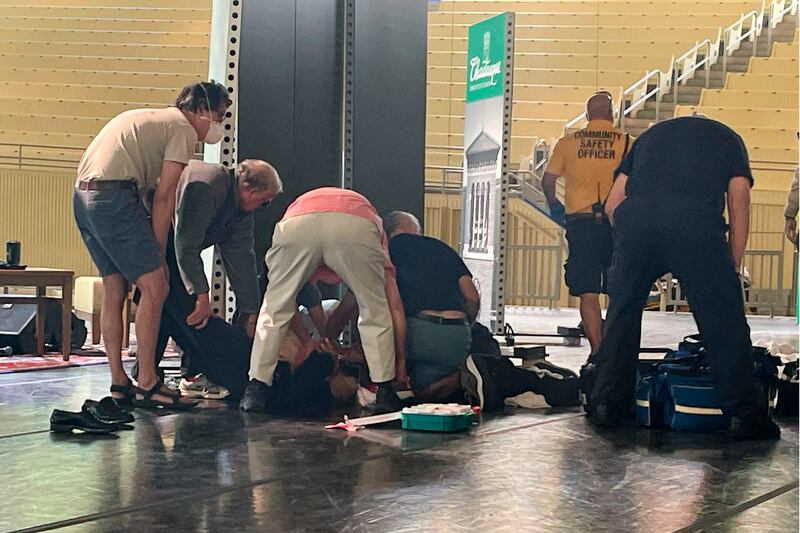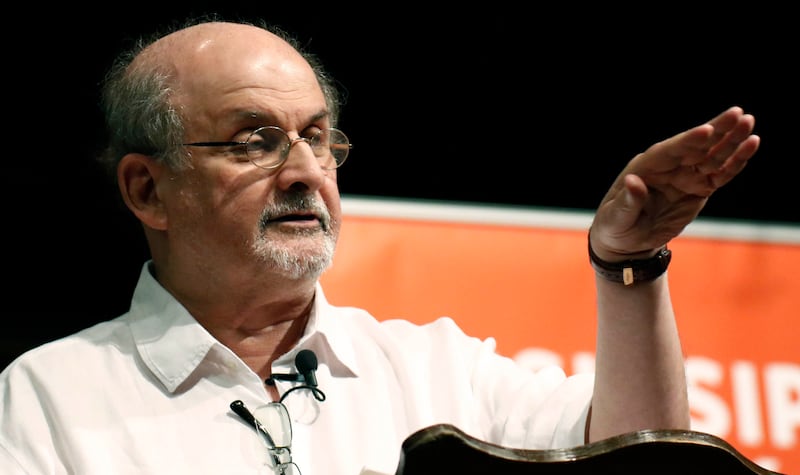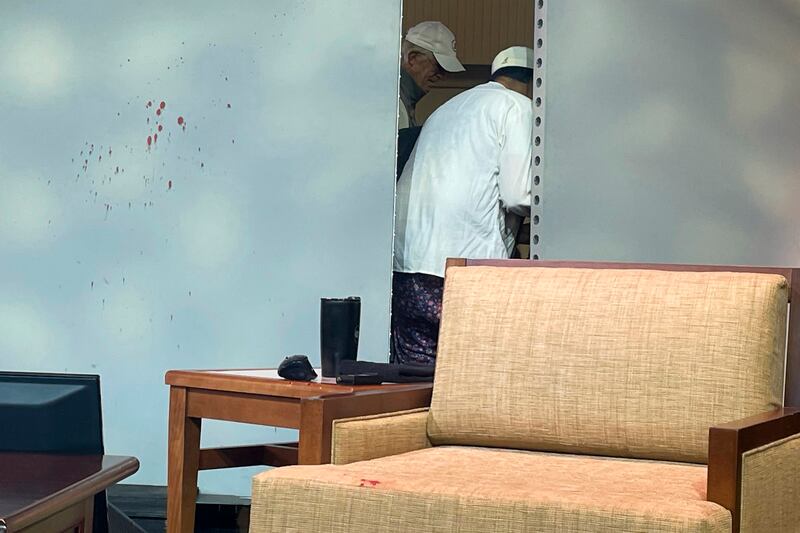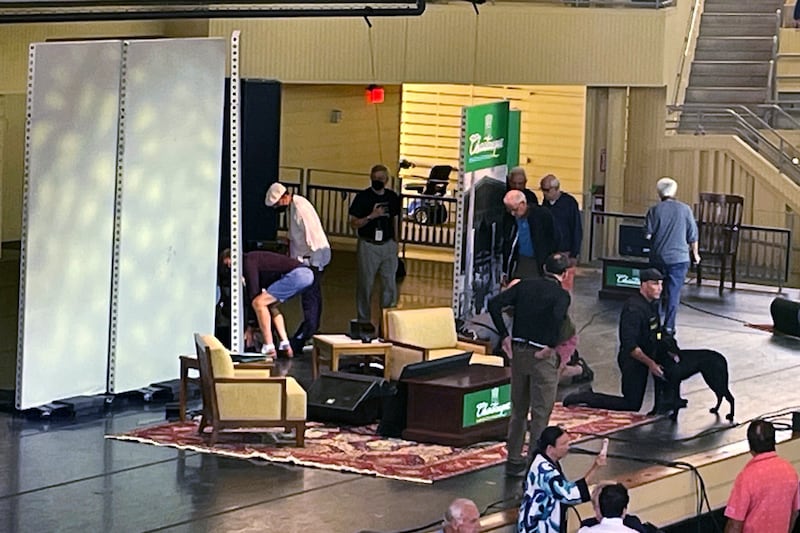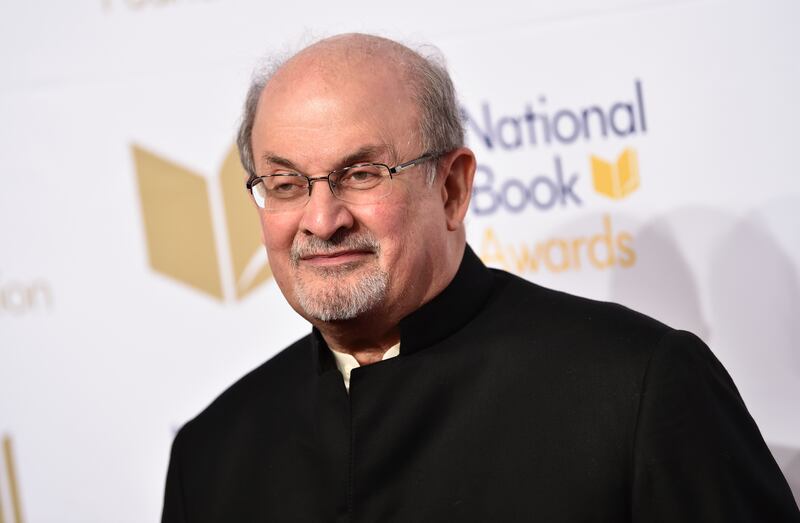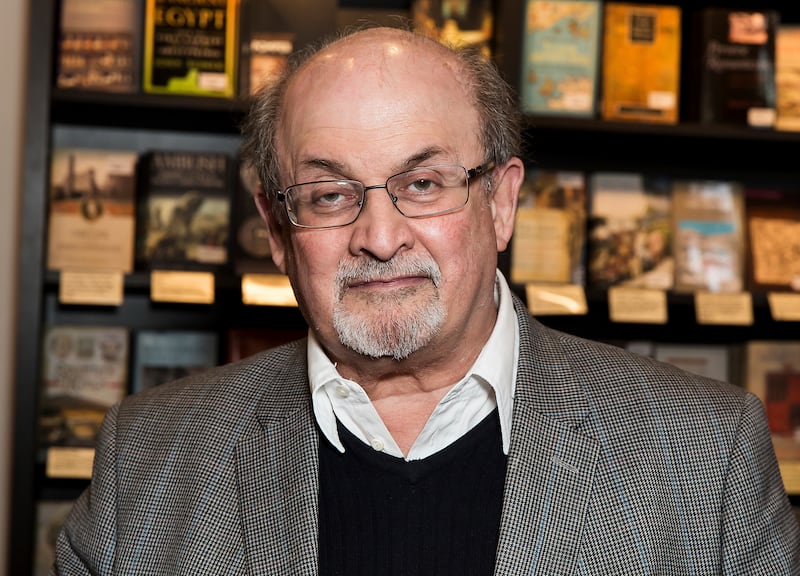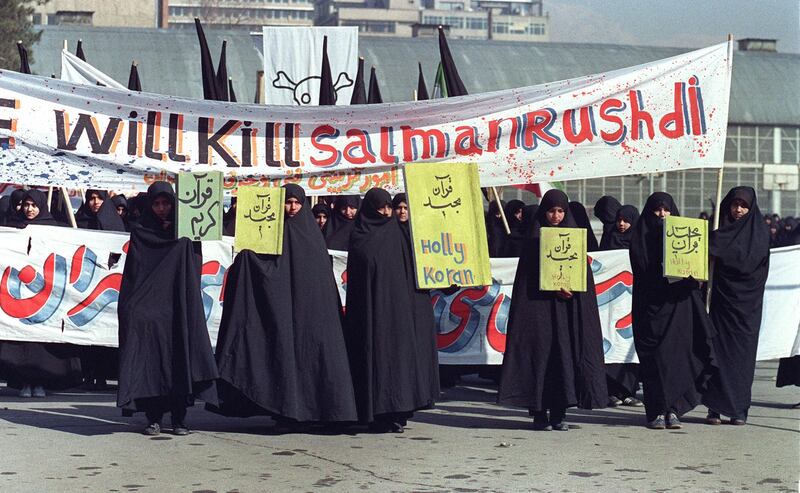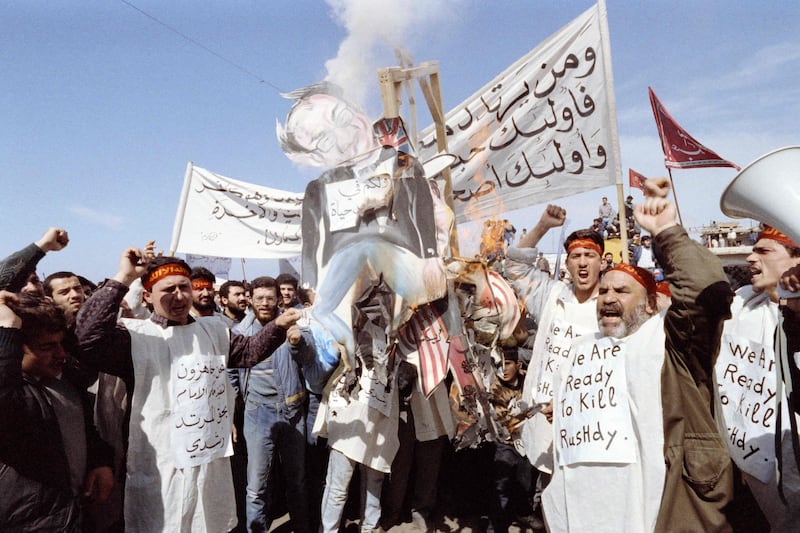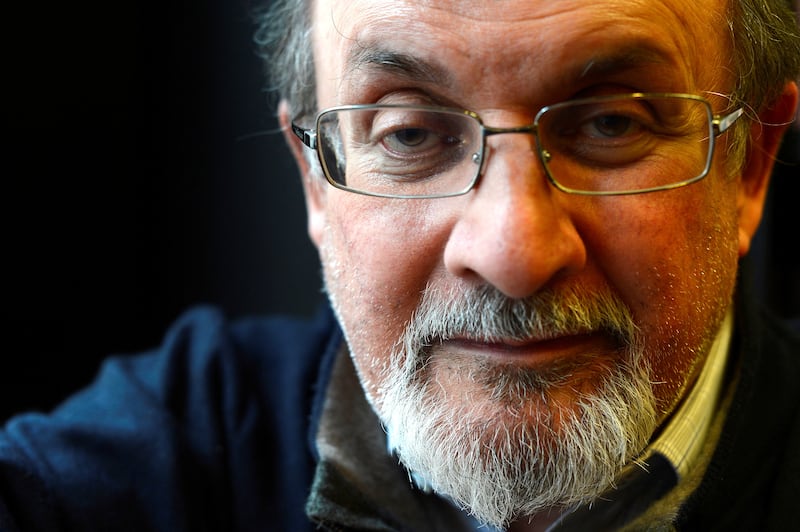A man charged in the US with the attempted murder of author Sir Salman Rushdie has pleaded “not guilty” in court.
Rushdie, who was severely injured during the incident on Friday, suffered a damaged liver and severed nerves in an arm and an eye, according to his agent, Andrew Wylie.
The accused, 24 year-old Hadi Matar, was arraigned in court in New York state, where prosecutors described the vicious attack. Rushdie was stabbed about 10 times, in what they said was a premeditated assault.
The author of The Satanic Verses was flown by helicopter for emergency surgery after the attack in upstate New York.
Mr Wylie said on Sunday that Rushdie was on the "road to recovery", but it would be a long process.
"The injuries are severe, but his condition is headed in the right direction," he said in a statement to media.
Mr Wylie, who has been providing updates on the writer's condition, confirmed on Saturday a tweet from author Aatish Taseer, who said Rushdie was “off the ventilator and talking (and joking)”.
Rushdie suffered severe, life-changing injuries when he was stabbed on Friday, but “his usual feisty and defiant sense of humour remains intact”, his son Zafar Rushdie has said in a family statement posted on Twitter on Sunday.
A lawyer for Mr Matar entered a not guilty plea on his behalf at a short court hearing on Saturday.
“The individual responsible for the attack yesterday, Hadi Mattar, has now been formally charged with attempted murder in the second degree and assault in the second degree,” Chautauqua County district attorney Jason Schmidt said.
Mattar was born in the US to Lebanese parents who emigrated from Yaroun, a border village in southern Lebanon, the local mayor, Ali Tehfe, told the Associated Press.
Rushdie was forced into hiding after the publication in 1988 of The Satanic Verses, which angered many Muslims, and has since become a champion of free speech in the West.
New York Governor Kathy Hochul said Rushdie was “getting the care he needs” after being airlifted to safety.
“Here is an individual who has spent decades speaking truth to power, someone who's been out there unafraid, despite the threats that have followed him his entire adult life,” she said.
President Joe Biden said he and first lady Jill Biden were “shocked and saddened” by the attack.
“Salman Rushdie — with his insight into humanity, with his unmatched sense for story, with his refusal to be intimidated or silenced — stands for essential, universal ideals,” he said. “Truth. Courage. Resilience. The ability to share ideas without fear. These are the building blocks of any free and open society.”
British Prime Minister Boris Johnson said he was “appalled” that Rushdie was attacked while exercising a right “we should never cease to defend”.
An AP reporter who was at the event saw a man run on to the stage at the Chautauqua Institution in western New York and begin attacking the author as he was introduced. Rushdie fell to the floor, and the man was restrained.
A video by Charles Savenor, who attended the event, shows people quickly tending to Rushdie after the attack.
The man ran on to the platform “and started pounding on Mr Rushdie. At first you’re like, ‘What’s going on?’ And then it became abundantly clear in a few seconds that he was being beaten,” Mr Savenor said. He added that the attack lasted for about 20 seconds.
Martin Haskell, a physician who was among those who rushed to help after the attack, described Rushdie’s wounds as “serious but recoverable”.
Rushdie had been scheduled to speak on how the US acts as an asylum for writers and other artists in exile, the event programme said.
Event moderator Henry Reese, co-founder and president of an organisation providing aid to writers facing persecution, was also attacked and suffered a minor head injury, police said.
“There are no words to describe this horror,” said Ruth Smeeth, chief executive of Index on Censorship, an organisation that campaigns for freedom of expression. “He is a brave man who will not be silenced.”
Members of the literary community have also shown their support on social media. Bestselling author Stephen King wrote: “I hope Salman Rushdie is OK.”
British author Neil Gaiman expressed concern in a tweet that read: “I'm shocked and distressed to see my friend @SalmanRushdie has been attacked before a talk. He's a good man and a brilliant one and I hope he's OK.”
And Sathnam Sanghera, author of Empireland, said many British-Asian writers would not be writers were it not for Rushdie.
However, the attack wasn't condemned universally, with Iranian newspapers praising Rushdie’s “brave and dutiful” attacker.
Rushdie was became famous after the publication of his 1981 novel Midnight's Children, which won the Booker Prize for its portrayal of colonial and postcolonial India.
His novel The Satanic Verses has been banned in Iran since 1988. At least 45 people were killed in riots around the world in protests against the novel.
A year after it was published, Iran's former supreme leader Ayatollah Ruhollah Khomeini issued a fatwa calling for the author's death.
A bounty of about $3 million was offered for anyone who killed Rushdie.
Rushdie spent nine years in hiding in the UK under a British government protection programme.
Iran's government has since distanced itself from the issue, but anger over Rushdie remains. A semi-official Iranian religious foundation in 2012 raised the bounty on Rushdie to $3.3m.
The author dismissed the threat at the time, saying there was “no evidence” of people being interested in the reward and published Joseph Anton, a memoir focused on the edict, that same year.
He has remained a staunch supporter of free expression and liberal causes.
“Mr Rushdie has long understood free speech’s necessity,” the Foundation for Individual Rights and Expression said.
Rushdie has lived in the US since 2000. His books have been translated into more than 40 languages.
